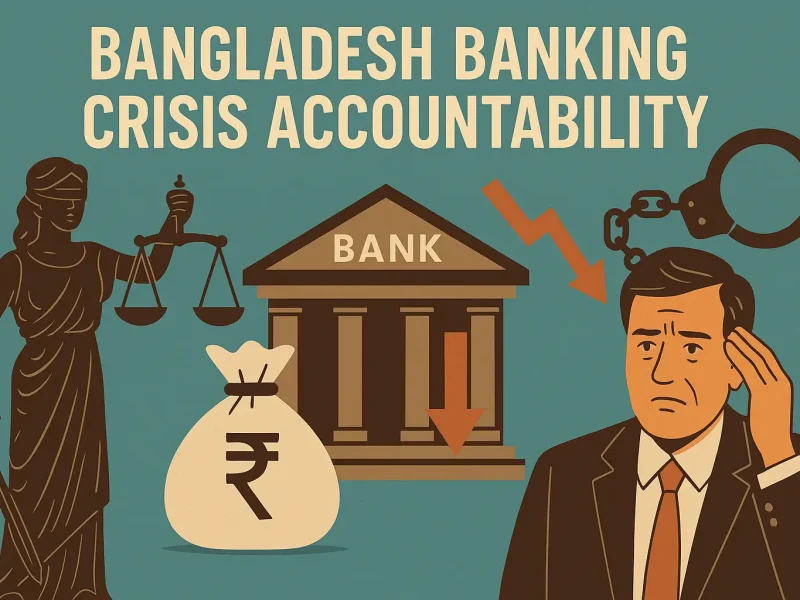Introduction to Financial Management and Fintech
Financial technology, or fintech, encompasses a diverse range of innovative solutions aimed at enhancing and automating financial services. This sector includes mobile banking, cryptocurrency, robo-advisors, and blockchain technology. Fintech significantly boosts the efficiency, accessibility, and security of financial transactions, thereby transforming conventional banking methods.
Blockchain technology, often regarded as transformative, is revolutionizing transaction processes across multiple industries. Transactions are grouped into blocks, which are then linked sequentially to form a chain, hence the term “blockchain.” This design guarantees data integrity, transparency, and security through advanced cryptographic techniques.
Pursuing a study in a Fintech Course offers individuals in-depth knowledge of advanced technologies and insights into emerging financial trends. It equips professionals to navigate complex regulatory environments and leverage disruptive innovations, ensuring they remain competitive in the market.
Expertise in blockchain technology, smart contracts, and decentralized applications (dApps) is increasingly in demand. These competencies are precious in industries such as finance, healthcare, and supply chain management, where blockchain is driving significant operational improvements. Gaining hands-on experience with blockchain platforms and understanding their applications can significantly enhance your attractiveness to employers seeking to implement blockchain solutions. Additionally, fintech and blockchain technology courses often provide industry-recognized certifications, which further strengthen your professional credibility and open up new career prospects within the dynamic blockchain field.
Financial Vulnerabilities and the Role of Cybersecurity
Fintech companies face a range of significant threats and vulnerabilities, necessitating comprehensive cybersecurity measures. One prevalent threat is phishing attacks, where cybercriminals impersonate credible entities to steal credentials. These attacks target both customers and employees, often leading to severe data breaches.
Another major threat is malware and ransomware attacks. Malware infiltrates financial systems, compromising sensitive data and operational integrity. To mitigate such risks and protect sensitive payment information, robust security measures like pci tokenization are crucial, as they replace actual card details with non-sensitive tokens, significantly reducing the scope of PCI compliance. Ransomware, on the other hand, restricts access to critical systems until a ransom is paid.
Vulnerabilities in fintech systems frequently stem from insecure application programming interfaces (APIs). APIs that connect various financial services can be exploited if not adequately secured, resulting in data breaches and unauthorized transactions.
Additionally, outdated software and systems represent a significant vulnerability. Such systems may contain known exploits that cybercriminals can exploit with relative ease. Consequently, fintech companies must consistently update and secure their systems to effectively address these risks.
Impact of Fintech in Multiple Domains
The evolving landscape of blockchain technology is transforming several key sectors by enhancing transparency, security, and efficiency. Its decentralized nature and immutable ledger provide a robust solution for fostering trust among stakeholders, optimizing operations, and driving future innovations.
- Finance: Blockchain is revolutionizing finance by enabling faster and more cost-effective cross-border payments through smart contracts. Its decentralized ledger enhances transparency and security, boosting confidence in financial transactions.
- Supply Chain: In supply chain management, blockchain improves transparency by tracking goods from origin to consumer. An immutable ledger records each transaction, ensuring product authenticity and mitigating fraud risks. This transparency enhances trust and addresses issues such as counterfeiting and inefficiencies.
- Healthcare: Blockchain secures patient records and facilitates data sharing among healthcare providers. It also enhances interoperability between systems, ensuring seamless medical information exchange while safeguarding privacy and data integrity.
- Government: Governments use blockchain to improve transparency and efficiency in public operations. Blockchain-based voting systems offer secure, immutable records of votes, enhancing election integrity.
- Real Estate: Blockchain accelerates and secures property transactions via smart contracts. Its transparent ledger simplifies title transfers and reduces fraud risks.
- Legal: Blockchain automates contract execution with self-executing smart contracts. These contracts enforce terms based on predefined criteria, minimizing the need for intermediaries and reducing disputes.
- Education: Blockchain ensures the integrity of educational credentials through secure certification systems. It enhances the credibility of academic achievements and mitigates credential fraud.
- Insurance: Blockchain streamlines claims and settlements with automated smart contracts. This reduces administrative costs and processing times while improving fraud detection.
- Digital Identity: Blockchain offers secure, portable digital identity solutions, allowing users to manage and verify credentials across various platforms.
Potential Barriers in the Fintech Industry
- Capital Constraints: Technological barriers often worsen challenges for fintech companies, especially when combined with the need for funding. Attracting investment from Silicon Valley is a primary goal for many fintech firms. However, top investors may be hesitant to invest in emerging markets where fintech operates, creating a significant challenge. This reluctance can leave developing countries struggling to secure any investment at all.
The prevailing bias in investment practices often results in Silicon Valley capital being directed toward duplicated projects rather than innovative ideas from less prominent markets. This bias undermines opportunities for groundbreaking solutions originating in developing regions. A more equitable and robust funding allocation system could mitigate these barriers, ensuring that promising ideas receive the necessary financial support to thrive.
- Regulatory Challenges: Regulatory challenges also hinder the fintech industry. Existing regulations are frequently not designed to support the rapid growth of emerging sectors like fintech. Although rules are crucial for safeguarding companies and consumers, issues such as cryptocurrency regulation, particularly concerning taxation and insurance, can impede industry progress. Reforming rules to be more supportive of fintech growth while still maintaining protective measures could facilitate industry advancement and ensure a balanced regulatory environment.
- Technological Limitations: In addition to regulatory and capital challenges, technological limitations can create substantial obstacles. Fintech companies often operate in areas where technology solutions are still evolving. The trial-and-error nature of adopting new technologies can hinder progress and innovation. For instance, companies must carefully evaluate which technologies will be beneficial and which will not, impacting their ability to advance and compete effectively.
- Future Outlook: Despite the fintech industry’s ongoing expansion, these barriers persist. Regulatory frameworks will evolve to accommodate fintech’s needs, technological challenges will be mitigated through continuous research, and capital investment will increase as successful fintech companies demonstrate strong returns.
Conclusion
FinTech and blockchain are intricate and evolving domains. Safeguarding digital assets requires a comprehensive strategy involving stringent security protocols, adherence to regulatory standards, and ongoing vigilance against new threats. Companies can protect their digital assets and uphold customer trust by engaging in IIM Fintech Course or blockchain management programs, implementing best practices, and staying abreast of technological developments.




